Vermont Faculty 2026
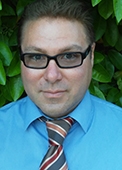
Damián Baca, BA, West Texas A&M University; MA, Northern Arizona University; PhD, Syracuse University. Professor of Mexican American Studies, University of Arizona.
Damián Baca is Professor of Mexican American Studies at the University of Arizona. He is author of Mestiz@ Scripts, Digital Migrations, and the Territories of Writing (2008), a retelling of the story of writing as a technology that emerges not with alphabets in the North Atlantic, but across the Valley of México, long before European territorial annexation and the advent of modernity/coloniality. He has also co-edited Rhetorics of the Americas: 3114 BCE to 2012 CE (2010), Landmark Essays on Rhetorics of Difference (2018), and Pluriversal Literacies: Tools for Perseverance and Livable Futures (2024). His 2019 publication, Rhetorics Elsewhere and Otherwise: Contested Modernities, Decolonial Visions with Romeo Garcia, is Winner of the 2020 CCCC Outstanding Book Award.

Barbara Black, AB Bryn Mawr College; MA, PhD, University of Virginia. Professor, Tisch Chair in the Arts and Letters, Skidmore College.
Barbara Black is Professor of English and Tisch Chair in Arts and Letters at Skidmore College, where she has received the Ciancio Award for Excellence in Teaching. She is the author of On Exhibit (Virginia 2000), A Room of His Own (Ohio 2012), and Hotel London (Ohio State 2019), and a co-editor of Olive Schreiner’s Dreams (Broadview 2020). Black’s essays have appeared in such venues as Victorian Poetry, Dickens Studies Annual, and Salmagundi. She has served on the Interdisciplinary Nineteenth-Century Studies board and as Book Review Editor of Nineteenth-Century Contexts. She currently serves on the Editorial Advisory Committee for PMLA.
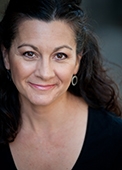
Angela Brazil, BA, California State University at Chico; MFA, University of Iowa. Associate Professor of Theatre/Acting and School of the Arts Theatre Program Coordinator, Dean College; Resident Actor, Trinity Repertory Company.
Angela Brazil is an Associate Professor of Theatre and the School of the Arts Theatre Program Coordinator at Dean College. She has been a member of Trinity Rep’s Resident Acting Company since 2000 (over 50 roles). Other theaters include Dallas Theater Center, Berkeley Rep, Long Wharf Theatre. Directing credits: Burbage Theatre, Trinity Rep, The Wilbury Group, Riverside Theater. Her first summer at Bread Loaf was as a member of the Bread Loaf Acting Ensemble in 2006. She has been recognized as one of the University of Iowa’s notable alumni. She served as Director of Brown/Trinity Rep’s MFA Programs in Acting and Directing. She has narrated numerous audiobooks.

Dare Clubb, BA, Amherst College; MFA, DFA, Yale School of Drama.
Dare Clubb taught playwriting, dramatic literature, and theory at the Iowa Playwrights Workshop of the University of Iowa for twenty-five years. He has taught at Princeton University, Barnard College, the New School for Social Research, and Jawaharlal Nehru University, and was playwright-in-residence at the Juilliard School from 1985-87. His plays have been performed at the Yale Repertory Theatre, Juilliard, and the O’Neill National Playwrights Conference. His original play Oedipus received an OBIE award in 1999. He received the University of Iowa Collegiate Teaching Award in 2007 and was a University of Iowa Faculty Scholar from 2009 to 2012.
Tyler Curtain, BSc, University of Colorado at Boulder; PhD, Johns Hopkins University. Associate Professor of English and Comparative Literature, University of North Carolina at Chapel Hill.
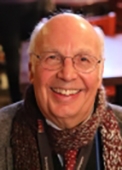
Stephen Donadio, BA, Brandeis University; MA, PhD, Columbia University. John Hamilton Fulton Professor Emeritus of Humanities and Director Emeritus of the Program in Literary Studies, Middlebury College.
Stephen Donadio received his B.A. degree from Brandeis University, was a Fulbright Scholar at the University of Paris (Sorbonne), and completed his doctorate in English and Comparative Literature at Columbia University, where he taught undergraduate and graduate courses before moving to Middlebury College. A recipient of NEH and Rockefeller fellowships, he is longtime member of the Bread Loaf faculty, and served as editor of the New England Review for twenty years. At Middlebury he is currently the Fulton Professor of Humanities and Director of the Program in Literary Studies. He has written on Nietzsche and Henry James, Ralph Waldo Emerson, Ernest Hemingway, F. Scott Fitzgerald, Walker Percy, Joseph McElroy, and Thomas Pynchon, among others, as well as modern poets including John Ashbery, Allen Ginsberg, and A.R.Ammons. At present his principal research interests are centered on a range of texts that challenge some established critical assumptions regarding the boundaries seen as separating certain literary categories, periods, and movements.

Lars Engle, AB, Harvard College; MA, Cambridge University; PhD, Yale University. Roxana McFarlin Chapman Chair in English, University of Tulsa.
Lars Engle has taught at Tulsa since 1988 and at Bread Loaf since 1999. He’s the author of books on Renaissance drama and Shakespeare (most recently Studying Shakespeare’s Contemporaries), coeditor of a standard collection of Renaissance dramas, coeditor of several essay collections (most recently Shakespeare and Montaigne) and author of many articles and chapters.

Ruth Forman, BA, University of California at Berkeley; MFA, University of Southern California. VONA/Voices Writing Workshop.
Ruth Forman is the author of poetry collections Prayers Like Shoes, Renaissance, We Are the Young Magicians, and children’s book, Young Cornrows Callin Out the Moon. She’s received the Barnard New Women Poets Prize, The Pen Oakland Josephine Miles Literary Award, The Durfee Artist Fellowship, the NCTE Notable Book Award, and recognition by The ALA. Ruth is a former teacher of creative writing with the University of Southern California and June Jordan’s Poetry for the People program at UC Berkeley as well as a thirteen-year faculty member with the VONA/Voices program. You can learn more about her at www.ruthforman.com.

John Fyler, AB, Dartmouth College; MA, PhD, University of California, Berkeley. Professor of English, Tufts University. Recipient of the 2025 John M. Kirk Chair of Medieval and Early Modern Literature, BLSE.
John Fyler is a Professor of English at Tufts University, where he teaches medieval literature. His books include Chaucer and Ovid and Language and the Declining World in Chaucer, Dante, and Jean de Meun. His essay “Language Barriers” won the Louis Round Wilson prize from Studies in Philology. He has been an ACLS and Guggenheim Fellow, and has had resident fellowships at the Camargo and Bogliasco Foundations, Clare Hall, University of Cambridge, and the Huntington Library. Most recently, he has been a Visiting Scholar at the American Academy in Rome, and at the Liguria Study Center in Bogliasco.
Shalom Goldman, BA, New York University; MA, Columbia University; PhD, New York University. Pardon Tillinghast Professor of Religion, Middlebury College.

Michael R. Katz, BA, Williams College; MA, DPhil, University of Oxford; DLitt, Middlebury College. C. V. Starr Professor Emeritus of Russian and East European Studies, Middlebury College.
Michael Katz is the C. V. Starr Professor Emeritus of Russian and East European Studies at Middlebury College. He has published two monographs on 19th century Russian literature (one on literary ballads and the other on literary dreams) and he has translated over twenty Russian novels into English, including works by Herzen, Chernyshevsky, Turgenev, Dostoevsky, and Tolstoy. In 2015 he won an Award for Outstanding Achievement in Scholarship given by the American Association of Teachers of Slavic and East European Languages. His translation of Dostoevsky’s Crime and Punishment, published in 2017, was issued as a Norton Critical Edition in 2019. Katz recently completed a translation of Nikolai Gogol’s short stories for Norton and edited a volume for the MLA series Approaches to Teaching on Crime and Punishment. Liveright/Norton published his translation of The Brothers Karamazov, and will also publish his new translation of The Idiot in 2026. He is currently working on a new version of Dostoevsky’s The Insulted and the Injured.
Holly Laird, BA, Bryn Mawr College; PhD, Princeton University. Frances W. O’Hornett Emerita Professor of Literature, The University of Tulsa.
Holly A. Laird has taught at Tulsa since 1988 and at Bread Loaf since 1999, serving in past summers on the BLSE faculty at the Santa Fe, Juneau, and Oxford as well as Vermont campuses, and teaching courses on the lyric, the history of poetics, and theory, among numerous others. She is author of Self and Sequence and Women Coauthors; co-editor (U.S.) of Contemporary Women Writers; co-lead transcription editor of the Online Diaries of Michael Field; and editor of The History of British Women’s Writing, vol. VII.

Rebecca Makkai,BA, Washington and Lee University;MA, Middlebury College. MFA Faculty at Bennington College and Northwestern University; Artistic Director, Story Studio Chicago.
Rebecca Makkai is the author of the 2023’s New York Times bestselling I Have Some Questions for You, as well as the novels The Great Believers, The Borrower, and The Hundred-Year House, and the story collection Music for Wartime. The Great Believers, one of the New York Times’ 100 Books of the 21st Century, was a finalist for both the Pulitzer Prize and the National Book Award; it received the ALA Carnegie Medal and the LA Times Book Prize among other honors. A 2022 Guggenheim Fellow, Rebecca teaches graduate fiction writing at Northwestern University, Bennington College, and Middlebury College’s Bread Loaf School of English; and she is Artistic Director of StoryStudio Chicago. She lives in Chicago and Vermont.

Kate Marshall, BA, University of California, Davis; MA, PhD, University of California, Los Angeles. Thomas J. and Robert T. Rolfs College Professor of English; Director, Franco Family Institute for Liberal Arts and the Public Good; Associate Dean for Research and Strategic Initiatives.
Kate Marshall is the author of Corridor: Media Architectures in American Fiction (2013), Novels by Aliens (2023) and articles on fabulism, weird fiction, media theory, and technology. She was the 2016-2017 Founders’ Fellow at the National Humanities Center. She co-edits the Post45 book series at Stanford University Press, and is currently working on a compact theory of the contemporary novella.

Ian Newman, BA, MA, University of Cambridge; PhD, University of California, Los Angeles.Associate Professor of English, University of Notre Dame.
Ian Newman is Associate Professor of English at the University of Notre Dame, and a fellow of the Keough-Naughton Institute for Irish studies. He has published widely on eighteenth- and nineteenth-century British and Irish literature and culture. He is the author of The Romantic Tavern: Literature and Conviviality in the Age of Revolution (Cambridge University Press, 2019) and co-editor of Charles Dibdin and Late Georgian Culture (Oxford University Press, 2018), and (with David O’Shaughnessy) Charles Macklin and the Theatres of London (Liverpool University Press, 2022). He is also responsible for a digital project tracing the meeting places of the London Corresponding Society, and a digital edition of the manuscript ballad collection of Francis Place, was a founding editor of the Keats Letters Project, and is board member of the 19th-century Song Club.

January O’Neill, BA Old Dominion University; MFA New York University. Professor, Salem State University.
January Gill O’Neil is a professor at Salem State University and the author of Glitter Road (2024), Rewilding (2018), Misery Islands (2014), and Underlife (2009), all published by CavanKerry Press. Glitter Road was a finalist for the 2024 New England Book Award. From 2012-2018, she served as the executive director of the Massachusetts Poetry Festival. The recipient of fellowships from the Massachusetts Cultural Council, Cave Canem, and the Barbara Deming Memorial Fund, O’Neil was the 2019-2020 John and Renée Grisham Writer-in-Residence at the University of Mississippi, Oxford. She currently serves as the 2022-2025 board chair of the Association of Writers and Writing Programs (AWP).
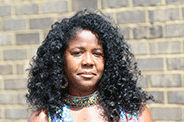
Michelle Bachelor Robinson, BA, Cameron University; MA, PhD, University of Louisville. Director of Comprehensive Writing and English Faculty, Spelman College; Change Curriculum Coordinator, BLSE.
Dr. Michelle Bachelor Robinson is the Director of the Comprehensive Writing Program at Spelman College. Actively involved in community-engaged research and writing in historically Black spaces, her publications include co-editor of The Routledge Reader of African American Rhetoric, articles in Peitho: Journal of the Coalition of Feminist Scholars in the History of Rhetoric and Composition and Council of Writing Program Administration (CWPA), and the senior contributing author for OpenStax Writing Guide with Handbook. Dr. Robinson joined the Bread Loaf faculty in the summer of 2019, offering courses in rhetoric and writing practice and pedagogy.
Cindy D. Rosenthal, BA, Tufts University; MA, New York University; PhD, New York University. Professor of Drama and Dance, Hofstra University.
Cindy Rosenthal is Professor of Drama and Dance at Hofstra University and a scholar, director, and performer living in New York City. Her monograph Ellen Stewart Presents: Fifty Years of La MaMa Experimental Theatre (University of Michigan Press) won the 2017 George Freedley Award. Coedited volumes include Late Stage: Theatrical Perspectives on Age and Aging, Restaging the Sixties: Radical Theatres and Their Legacies, The Sixties, Center Stage (University of Michigan) and Modern American Drama: Playwriting in the US: 2000-2009 (Bloomsbury/Methuen). Her essays on the avant garde, the performance of age, and radical theatre have appeared in The New York Times, Theatre Survey, Performance Research International, and TDR. She is a proud founding member of the Bread Loaf Acting Ensemble.
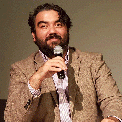
James Chase Sanchez, BA, MA, University of Texas at Tyler; PhD, Texas Christian University. Associate Professor of Writing and Rhetoric, Middlebury College.
James Chase Sanchez is an Assistant Professor of Writing and Rhetoric at Middlebury College. He recently published two books, a co-authored monograph titled Race, Rhetoric, and Research Methods and a single-authored monograph titled Salt of the Earth: Rhetoric, Preservation, and White Supremacy. The latter book draws upon his 2018 documentary, Man on Fire, which premiered on PBS’s Independent Lens and won an International Documentary Association Award. Sanchez is currently finishing production of two more documentaries: one titled North Putnam, which is a direct cinema approach to an incredible school district in rural Indiana (and is executive produced by famed author Dave Eggers). The other film, titled In Loco Parentis, investigates a decades-long fight to reconcile sexual abuse at two prestigious New England boarding schools. In Loco Parentis is represented by Submarine Entertainment, who have developed and sold six of the last twelve Academy Awards in Documentary.
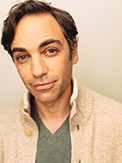
Ben Steinfeld, BA, MFA, Brown University. Adjunct Professor and Artistic Associate at the Gallatin School of Individualized Study, New York University; Co-artistic Director, Fiasco Theater.
Ben’s working life blends acting, directing, teaching, writing, and music-making. He has appeared on stages from Broadway to London, and is a co-artistic director of the award-winning Fiasco Theater in NYC, best known for it’s celebrated productions of Cymbeline and Into the Woods, among many others since its founding in 2009. He teaches at Brown and NYU during the year.

Robert Sullivan, AB, Georgetown University.
Robert Sullivan is the author of eight books, including The Meadowlands, Rats, and My American Revolution. His most recent book is Double Exposure: Resurveying the West with Timothy O’Sullivan, America’s Most Mysterious War Photographer, published by FSG. He is a 2021 Guggenheim fellow, a 2025 recipient of an Arts and Letters Award in Literature from the American Academy of Arts and Letters, and a contributing editor and board member at A Public Space. He lives in Philadelphia.
Sam Swope, BA, Middlebury College; MA, University of Oxford. Founder and President Emeritus, Academy for Teachers.
Sam Swope is founder and president emeritus of the Academy for Teachers and dean emeritus of the Teacher Institute at the Cullman Center for Scholars and Writers at the New York Public Library. He’s the author of I Am a Pencil: A Teacher, His Kids, and Their World of Stories, The Araboolies of Liberty Street, The Krazees, Gotta Go! Gotta Go!, and Jack and the Seven Deadly Giants.
Stephen Thorne, BA Loyola Marymount University MFA University of Iowa
Stephen Thorne is a professional actor, director and playwright. He has been a member of the Resident Acting Company at Trinity Rep in Providence for 25 years. He has been a member of the Bread Loaf Acting Ensemble since 1999.

David Bwire (Wandera), BEd, Moi University, Kenya; MA, MLitt, Middlebury College; PhD, The Ohio State University. Associate Professor of Special Education, Language and Literacy, The College of New Jersey.
David B. Wandera is an Associate Professor in the department of Special Education, Language and Literacy in the School of Education, at The College of New Jersey. His scholarship is located within the field of transcultural literacy studies. Originally from Kenya, he is a linguistic anthropologist who studies the changing nature of language and identity practices among youth in globalizing localities. His current project on decolonizing research traditions illustrates how the field of literacy research can benefit from cross-cultural epistemic collaborations.
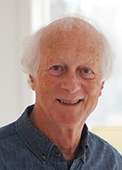
Bryan Wolf, BA, Rice University; MAR, Yale Divinity School; MA, PhD, Yale University. Jones Professor Emeritus in American Art and Culture, Stanford University; Former Visiting Professor, Yale University.
Bryan Wolf is the Jones Professor, Emeritus, Stanford University. He co-directed the Stanford University Arts Initiative, an interdisciplinary effort to expand the role of the arts in undergraduate and graduate education. His books include Romantic Re-Vision: Culture and Consciousness in American Art and Literature; Vermeer and the Invention of Seeing; and American Encounters, a co-authored textbook on American art. A former Guggenheim Fellow, he has served as the Senior Visiting Scholar at the Terra Foundation Residency for American Art in Giverny, France. The Yale Daily News voted him one of the “Ten Best Teachers at Yale.” His current work centers on the way that artists like Philip Guston and Martin Puryear address issues surrounding the Holocaust and the Civil Rights movement.
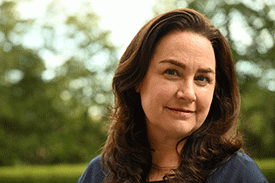
Tamsen Wolff, BA, Smith College; PhD, Columbia University. Associate Professor of English, Princeton University.
Tamsen Wolff specializes in modern and contemporary drama and performance, gender studies, voice, directing, and dramaturgy. Her book Mendel’s Theatre: Heredity, Eugenics, and Early Twentieth-Century American Drama reveals the complex role of heredity and hereditary theory in the emergence of modern American drama. She published her first novel, Juno’s Swans (Europa Editions), in 2018. She is currently working on a book entitled Ev’ry Syllable She Utters: Parsing the Voice in Musical Theater and a historical novel, This Is a New Country, based on nineteenth-century immigrant love letters. Wolff has worked professionally as a director and a dramaturg, and she is an Associate Teacher of Fitzmaurice Voicework.
